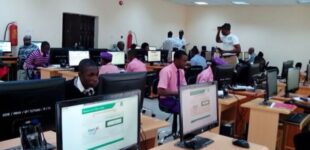The work of thinking: education and the unease of the 4th industrial revolution

Conducting my doctoral research has given me a new appreciation for the work of thinking. Thinking—just plain thinking through ideas—is a major part of work that is often underestimated.
I usually have weekly meetings with my advisors and my research group where all we do is think and talk through ideas. For someone who was more given to ‘doing’, I remember how weird it felt in my first year.
You mean all we are doing in a 90-minute meeting is just look at some data, think and talk about our thinking? Shouldn’t we be doing better things with our time? Say, like, actually writing papers? Or doing things that are more material? Things we can “show” people as what we have done?
Those were my thoughts. However, now I appreciate better the role that thinking plays as the primary tool for creativity and innovation. Every product, service, research, book, publication, or what-have-you is evidence that someone, somewhere, gave themselves to the work of thinking hard and long. For the person of faith, this idea of thinking being the first work of creation can be seen even in the story of God’s creation of man. There was a “Let us make man” strategy session first before man was in fact made.
Beyond my appreciation for the work of thinking, I also now better understand why I had discomfort with my advisors’ practice of making room for thinking in the first place. Understanding the changes that have happened in the industrial world helped me see there was more to my discomfort than just a mere emotional reaction. The issue is way bigger than me.
One of the major transitions from the 3rd to the 4th Industrial Revolution was a notable work shift from manual labour to intellectual endeavours. Intellectual work was indeed available from the earlier industrial revolution but access to it was limited to the elite who were able to access required status either through heritage, wealth and/or education. The elite were the intellectuals whose work focused more on thinking and creating. The general populace was mostly alienated from this kind of work and was instead engaged more in the manual labour of implementing what the elite creators had thought through, designed, and created templates for.
A factory worker, for example, needed not to engage some high-level cognitive skills to do his routine job of creating products according to patterns/moulds/templates made available to him. He neither had to understand why the mould/template had its unique characteristics nor the depth of thinking that went into the mould creation, to do his job effectively. He just needed to follow the steps he had been given, without necessarily understanding why the steps were there in the first place.
The 4th revolution however opened up the creative space to a wider audience. All of a sudden, more people without such status began to have better access to resources, tools, and technologies that enabled them to imagine new things and actually create them. The 4th Industrial Revolution thus became an era characterized by more “knowledge work” that requires and relies on higher levels of cognitive skills, and problem-solving abilities.
However, old habits die hard. Although the work requirement of the 4th industrial revolution has made a substantial departure from its manual-labour-focused predecessors, the corresponding departure towards a more thinking-focused perspective of work, education, and general lifestyle has been slower.
We are still drawn to think of work only from a material perspective that is rooted in the manual labour world of the previous eras. Imagine for a moment someone told you all they did through their workday was think through a hard problem with nothing “material” to show for their work, because the work of thinking is still ongoing. Would you really think they have worked that day? Would it make you feel uneasy to say that to your boss if this person were you? That is a simple example of what I am talking about.
This issue is however not only limited to our thoughts on productivity, but also far more entrenched in our perspective and practice of education. In developing countries like Nigeria, our education system is still somewhat stuck in the 3rd Industrial Revolution (IR) where the central work of the general populace was focused on replication, making memorization the most important goal of education. Our school system is still so model-fixed, cramming-ridden and canon-happy.
Although the 4th Industrial Revolution requires creators, the school system is building replicators who are not empowered to the degree that they are able to do the work of long and hard thinking. No wonder the issue of youth unemployability is a growing challenge in Corporate Nigeria.
Our school system needs an urgent overhaul! The world is not waiting for us. While we are still grappling with the need for an urgent conversion from a 3rd IR schooling system to a 4th IR system, the world is already moving towards a 5th Industrial Revolution! Education reformation is an urgent work that needs all hands on deck. The earlier we fix this, the better for us all!
Oluwatoyin is a Doctoral Researcher in STEM Education, a Social Impact Leader and an Education Policy Advocate. She writes from Nigeria and the United States. She can be reached at [email protected] or on LinkedIn here.
Views expressed by contributors are strictly personal and not of TheCable.
















There are no comments at the moment, do you want to add one?
Write a comment